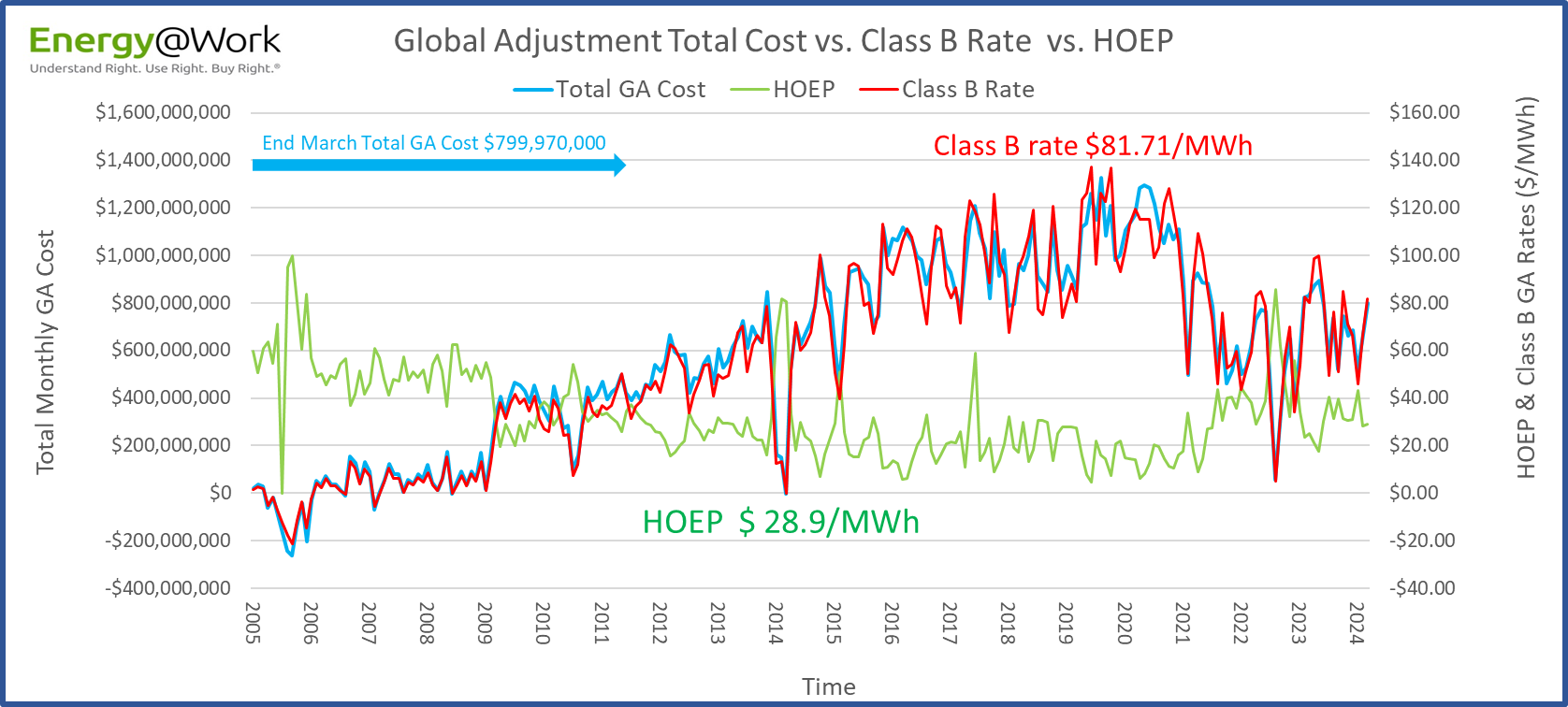In March 2024, GA cost was $0.80 billion. This is a 24% increase from February 2024 GA of $0.64 billion.
If we compare March 2024 with March 2023, there was a 4% decrease (it was $0.83 billion).
The Class B March GA rate was $81.71/MWh ($0.082/kWh)
The Average HOEP for March was $28.9/MWh ($0.029/kWh
With these drastic monthly swings in cost, Energy@Work continues to ask “why?”.
We provide a monthly review of GAM costs, however, the reason for the cost as well as the vast cost fluctuation remains a mystery.
Energy@Work’s services include a “GAM coach”. We maintain the importance of a GAM Strategy for Class A and Class B in order to win the (GAM)e. Our collective savings have exceeded $10 million, and we look forward to continuing to assist.












